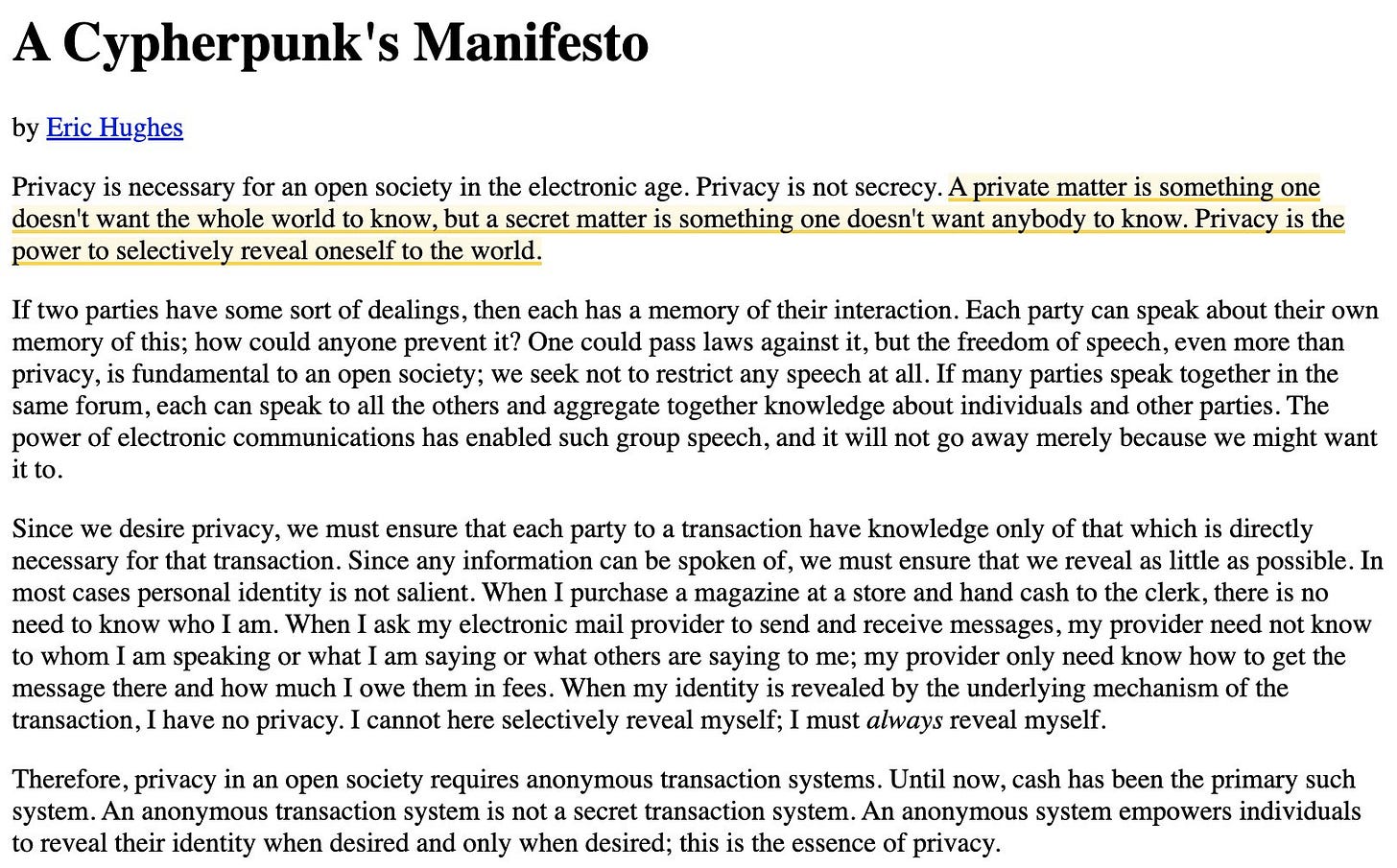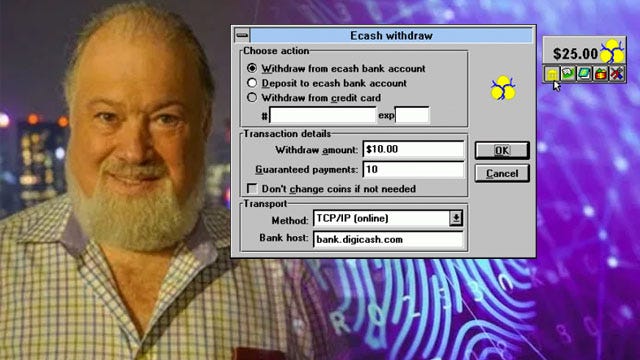The term "cyberpunk" conjures images of neon-lit dystopias, rogue hackers, and a gritty fusion of high tech and low life.
But beyond the aesthetic of sci-fi novels and films lies a real-world movement—a philosophy that has shaped the digital frontier and given rise to innovations like Bitcoin.
So, what are cyberpunks, what do they stand for, and how does their history intertwine with the world’s most famous cryptocurrency?
Let’s dive in.
Post sponsored by Bull Bitcoin, the best Bitcoin only Exchange. Buy & Sell Bitcoin, DCS + pay your bills with Bitcoin.
Who Are the Cyberpunks?
Cyberpunks are more than just characters in a William Gibson novel or a Blade Runner-inspired video game.
In the real world, they emerged as a subculture in the late 20th century, blending a passion for technology with a deep skepticism of authority.
At their core, cyberpunks are technologists, cryptographers, and visionaries who believe in using technology to empower individuals and resist centralized control—be it from governments, corporations, or other power structures.
The term "cyberpunk" itself is a mashup of "cybernetics" (the science of systems and control) and "punk" (the rebellious, DIY ethos of the 1970s punk rock scene).
This combination reflects their dual nature: masters of cutting-edge tech with an anarchist streak.
Cyberpunks champion privacy, freedom, and self-sovereignty in a world increasingly dominated by surveillance and institutional overreach.
What Do Cyberpunks Stand For?
Cyberpunks are driven by a few key principles:
Privacy as a Fundamental Right: In an age of data harvesting and mass surveillance, cyberpunks see privacy as non-negotiable. They advocate for tools like encryption to protect individuals from prying eyes.
Decentralization: Power concentrated in the hands of a few—whether governments or tech giants—is anathema to cyberpunks. They push for systems that distribute control among the many.
Self-Sovereignty: Cyberpunks believe individuals should control their own data, money, and destiny, free from intermediaries or gatekeepers.
Open-Source Innovation: Knowledge and tools should be freely shared, not hoarded. This DIY ethos fuels their creation of software and systems accessible to all.
Resistance to Authority: Whether it’s cracking down on censorship or challenging financial monopolies, cyberpunks are the digital equivalent of rebels with a cause.
These ideals didn’t stay confined to obscure message boards or sci-fi conventions—they laid the groundwork for one of the most disruptive technologies of our time: Bitcoin.
The History of Cyberpunks and Bitcoin
The cyberpunk movement took root in the 1980s and ’90s, fueled by the rise of personal computing and the internet.
Early pioneers like the Cypherpunks—a group of cryptographers and activists who formed in 1992—began exploring how cryptography could protect privacy and upend traditional power structures.
Their mailing list became a hotbed of ideas, with members like Eric Hughes, Timothy C. May, and Hal Finney debating everything from anonymous communication to digital cash.
In 1993, Eric Hughes penned the Cypherpunk Manifesto, declaring:
“Privacy is necessary for an open society in the electronic age… We the Cypherpunks are dedicated to building anonymous systems.”
This wasn’t just talk. They built tools like PGP (Pretty Good Privacy) for encrypted email and experimented with concepts like untraceable digital money.
The dream of digital cash predates Bitcoin by decades.
In the 1980s, David Chaum introduced DigiCash, an anonymous electronic currency, but it relied on centralized servers and ultimately failed to gain traction.
Later, Cypherpunks like Wei Dai (with B-Money) and Nick Szabo (with Bit Gold) proposed decentralized systems that came tantalizingly close to what Bitcoin would become. These ideas floated around the Cypherpunk mailing list, waiting for the right spark.
That spark arrived in 2008, when an enigmatic figure named Satoshi Nakamoto published the Bitcoin whitepaper.
Titled “Bitcoin: A Peer-to-Peer Electronic Cash System,” it outlined a decentralized, trustless currency secured by cryptography and a novel technology called the blockchain. When Bitcoin launched in 2009, it was a cyberpunk fantasy made real: a system where no bank, government, or corporation could control your money.
Satoshi’s identity remains unknown, but their ties to the cyberpunk ethos are undeniable.
Early Bitcoin adopters included Cypherpunks like Hal Finney, who received the first Bitcoin transaction from Satoshi.
The whitepaper itself echoes cyberpunk values—decentralization, privacy, and resistance to centralized authority.
Bitcoin wasn’t just a currency; it was a manifesto in code.
Bitcoin: The Cyberpunk Legacy
Bitcoin embodies the cyberpunk spirit in action. It’s a decentralized network where users hold the keys to their wealth, free from banks or regulators.
Its pseudonymous design nods to the privacy obsession of the Cypherpunks, even if it’s not fully anonymous.
And its open-source nature ensures anyone can participate or build on it—a hallmark of the cyberpunk DIY ethos.
Over the years, Bitcoin has faced its share of challenges: government crackdowns, corporate co-opting, and debates over its direction.
Yet it persists, much like the cyberpunks themselves—adaptable, resilient, and defiant.
Today, it’s not just a tool for tech enthusiasts but a global phenomenon, inspiring a wave of cryptocurrencies and blockchain projects that carry the cyberpunk torch forward.
The Future of Cyberpunk Ideals
Cyberpunks aren’t relics of the ’90s—they’re more relevant than ever. As surveillance tech grows more invasive and centralized systems tighten their grip, the need for privacy, decentralization, and self-sovereignty only intensifies.
Bitcoin is a triumph, but it’s not the endgame. The cyberpunk ethos continues to drive innovations like privacy coins (e.g., Monero), decentralized internet protocols, and encrypted messaging apps.
In a world where data is the new oil and control is the new currency, cyberpunks remind us that technology can be a liberator, not just a leash. Bitcoin is their most famous victory, but the fight for a freer, more open digital future is far from over.
So, next time you send a Bitcoin transaction or encrypt an email, tip your hat to the cyberpunks.
They’re the ones who dared to dream of a world where power belongs to the people—not the system.
Post sponsored by Bull Bitcoin, the best Bitcoin only Exchange. Buy & Sell Bitcoin, DCS + pay your bills with Bitcoin.










In my book the Cypherpunks arrive just in time to fight the cultist in the third act.
Another fun fact: btc paper released 10/31/08. Guess what happened 12-earlier to the day? Search “minting gold” +